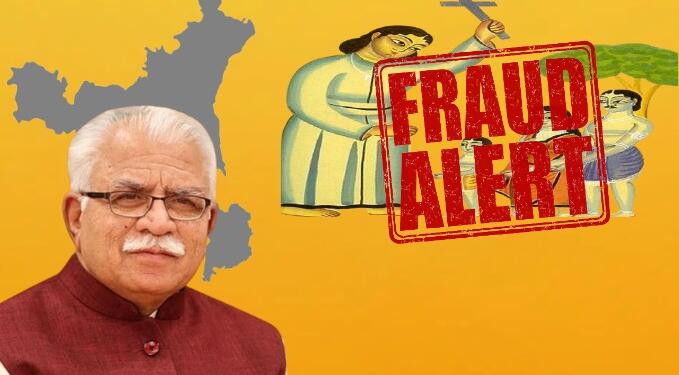- Haryana Government has accepted the draft of the anti-conversion bill.
- The bill prescribes punishment for religious conversion in the state.
- Since the Central government does not have the power to bring in a nationwide law, the states have to take charge.
Conversion has been one of the biggest concerns for the Hindu Samaj in the last 500 years. However, it’s only in the last few years that governments have woken up to counter this menace. Now, Haryana will become one of the few states to implement the Anti-conversion bill.
Khattar government assents to Anti-conversion bill
BJP government in Haryana has given its nod to the draft of The Haryana Prevention of Unlawful Conversion of Religious Bill, 2022. It will punish those who force an individual to change her/his religion.
The bill aims to prohibit religious conversions which are effected through misrepresentation, force, undue influence, coercion, allurement or by any fraudulent means or by marriage or for marriage by making it an offence.
Bill does not infringe upon the individual right
It is pertinent to note that the bill does not put a restriction on someone’s freedom to choose their religion. It restricts only those elements who force someone to change their religion through fraudulent means.
The statement of object and reasons of the bill specifically states this aspect. Drawing a distinct line between individual rights and rights of the community, it states, “The individual right to freedom of conscience and religion cannot be extended to construe a collective right to proselytize; for the right to religious freedom belongs equally to the person converting and the individual sought to be converted.”
The key aspects of the bill
- If a person accuses someone of converting her/him through proscribed means, then the accused will have to provide evidence that he/she hasn’t done it.
- If the accused has forcibly converted minors, women, or persons belonging to SC/ST community, then he will be subject to harsher punishment.
- If a person has married someone by concealing his/her religion, then that marriage can be declared null and void.
Read more: CBI to probe into TN’s Lavanya suicide case linked to forceful religious conversion
The Union government can’t do it
Ever Since the Modi government came to power in 2014, various concerned groups have been demanding nationwide legislation against conversions in the country. However, in 2015, Union Law Ministry made it clear that the Indian Parliament does not have legislative competence to pass anticonversion legislation. This is why the onus fell onto individual states.
Recently, various other states have taken measures to curb religious conversion in states. States such as Karnataka, Arunachal Pradesh, Chhattisgarh, Gujarat, Himachal Pradesh, Jharkhand, Madhya Pradesh, Odisha, Uttar Pradesh and Uttarakhand have already passed laws prohibiting conversion in their territories.
Read more: Karnataka’s anti-conversion bill will throw the culprits behind bars for up to 10 years
Supreme Court has also taken cognisance of conversion
Conversion has been one of those insects which have been slowly eating up Hindu Samaj. Love-Jihad has been the especially infamous method of conversion. Even Supreme Court had criticised that phenomenon in the following words, “Such incidents not only infringe the freedom of religion of the persons so converted but also militate against the secular fabric of our society”
Read more: Probably for the first time, Judiciary admits that conversion of Hindus is weakening the country
Up until now, conversion was whitewashed by liberals in the name of individual choice. However, they refrained to debate the point that individual choices can be coerced. Haryana government’s bill needs to be specifically commended for highlighting this particular aspect.

























